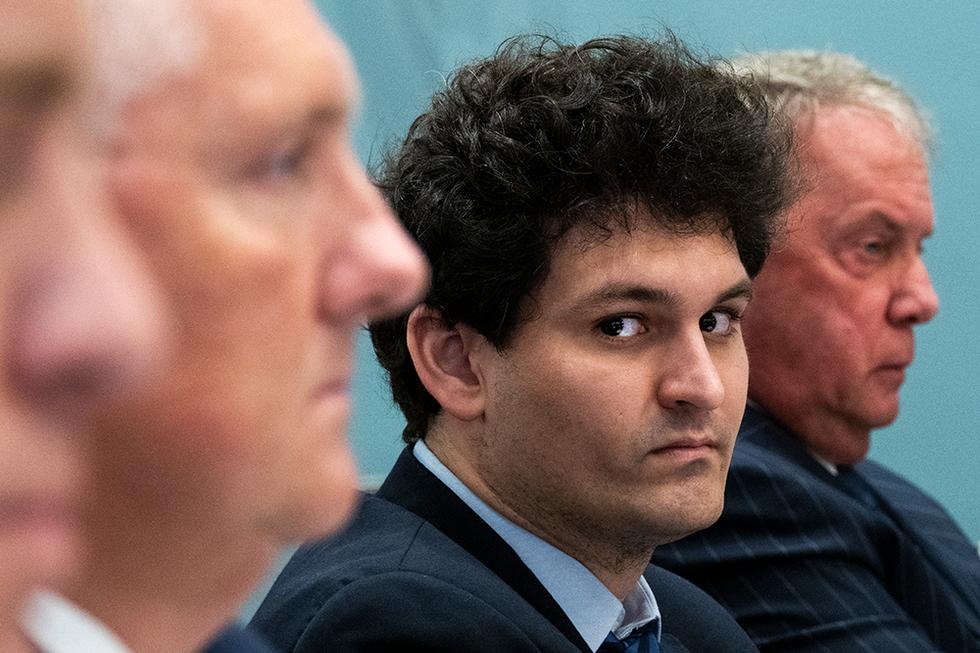Ark Investments, the investment firm led by Cathie Wood, increased Coinbase stock holdings after buying nearly 238,000 shares, totalling $12.1 million earlier this week.
The firm boosted its Coinbase shares across its numerous divisions, with Ark Investment Management adding to its ARK Innovation (ARKK), ARK Next Generation Internet (ARKW), and ARK Fintech Innovation (ARKF) exchange-traded funds (ETFs) at 207,527, 22,416, and 7,732, respectively.
The share buyout increased Coinbase’s shares to 7.625 million, or 1 million less than its figures on 20 July this year at 8.675 million, data from Cathie’s Ark revealed.
$ARKK has purchased 350k more $TSLA shares in the last 30 days with 272k in the last 7 days. What does Cathie know we don’t know?
— Thomas Thornton (@TommyThornton) October 5, 2022
The news comes as the firm acquired roughly 350,000 shares of Tesla (TSLA) stocks this week, namely after Tesla CEO Elon Musk sold off nearly $4 billion in shares this month.
Coinbase SEC Row, FTX Collapse
Coinbase’s Brian Armstrong responded to the FTX liquidity collapse, stating it had “minimal exposure” of just $15 million to the cryptocurrency exchange and adding it was to “facilitate business operations and customer trades.”
Coinbase’s share prices tumbled 10.84 percent on 8 November following the FTX exchange crisis. The firm reiterated it had no exposure to FTT, FTX’s native token, which plummeted just over 84 percent after numerous exchanges such as crypto trading giant Binance liquidated their full coin holdings.
2/ Second, Coinbase doesn’t have any material exposure to FTX or FTT (and no exposure to Alameda).
— Brian Armstrong (@brian_armstrong) November 8, 2022
Ark Investments also sold off more than 1.4 million shares across its ETFs, totalling $75 million, triggered by a US Securities Exchange Commission (SEC) investigation into alleged insider trading of unregistered securities.
The exchange also ordered mass layoffs of 60 positions, and Alesia Haas, Coinbase’s CFO, said in a statement: “Today’s actions were surgical. We are just making sure we are not wasting a dollar […] If we see that there is going to be further depressed revenue, and if we believe this is going to impact beyond the scenarios we have already planned for, we will have to take further cost-saving action.”
Cryptocurrency prices have nosedived amid the ongoing FTX collapse, with multiple prominent stablecoins depegging across exchanges.
News of the FTX bankruptcy has triggered massive market volatility due to huge levels of redemptions totalling over $600 million. Tether (USDT), temporarily fell slightly to $0.97 USD on Thursday.
Currently, USDT has regained some of its value after climbing to $0.998, data from CoinMarketCap shows. Additional stablecoins such as TrueUSD (TUSD) and BinanceUSD (BUSD) also tumbled slightly to $0.98 following the news.
.@HuobiGlobal @Poloniex @usddio does not have any investment or exposure in FTX. User assets reserve rate is over 100% (because we are making money) Huobi has completed over 30 B USD of user funds redemption from mainland China withdrawals.
— H.E. Justin Sun🌞🇬🇩🇩🇲🔥 (@justinsuntron) November 12, 2022
The news comes amid accusations that Sam Bankman-Fried, former FTX chief executive, shorted USDD as users began a massive bank run on the exchange on Thursday.
Most stablecoins have regained their $1.00 peg, with markets gaining 5 percent in total capitalisation, or $900 billion, according to data.
FTX Collapse, Bankruptcy
FTX filed for Chapter 11 bankruptcy protection in the US, the company said in a recent tweet. Sam Bankman-Fried also resigned as company chief executive following the news, with John J Ray III stepping in to fill the role amid the firm’s difficult transition.
Press Release: Clarification on Certain Entities Not Included in Chapter 11 Filings. pic.twitter.com/rxmY2f2iTB
— FTX (@FTX_Official) November 12, 2022
FTX currently has roughly 130 affiliated companies such as Alameda Research and numerous subsidiary branches worldwide. According to the company’s bankruptcy procedures, it has 100,000 creditors, up to $50 billion in assets, and similar liabilities.
Crypto.com chief executive Kris Marszalek has joined a growing list of cryptocurrency firms publishing their “audited proof of reserves” in the aftermath of the FTX crypto scandal.
The message comes shortly after a second platform, Solana, temporarily halted transactions on its USDC and USDT coins on Wednesday, triggering concern from Crypto.com.
It reassured customers they could withdraw both coins from its systems, indicating some networks were unaffected by the downtime.
“[We] will publish the list of cold wallet addresses and balances for major assets within 24 hours. Full transparency,” he said in one of his tweets.
https://t.co/pFc4Pz9nFR will publish the list of cold wallet addresses and balances for major assets within 24 hours.
— Kris | Crypto.com (@kris) November 11, 2022
Full transparency.
He added in the thread: “We share the belief that it should be necessary for crypto platforms to publicly share proof of reserves”
Solana has an active and robust ecosystem of builders. The network is strong. @solanaconf demonstrated that the energy and commitment and range of projects is stronger than ever. That hasn’t changed in the last 48 hours.
— Solana (@solana) November 10, 2022
The vision remains the same. A thread 🧵 pic.twitter.com/Ly0XxcHUNk
Additional companies, including Binance, the world’s largest exchange platform, also pledged to remain transparent with their crypto reserves by establishing a Proof of Reserves audit system.
The company said in its statement that it would share details of hot and cold wallet addresses to create a “Merkle tree [proof of funds]” it would share with the community “in the next few weeks.”
It concluded: “Our objective is to allow users of our platform to be aware and make informed decisions that are aligned with their financial goals.”
FTX, SBF Downfall
News of the blackout comes just days after crypto markets spiralled into a freefall after major crypto exchange platform FTX collapsed, citing a massive liquidity crunch
The company attempted a deal with Binance to receive crucial liquidity boosts, but the deal fell through after the former’s chief executive, Changpeng Zhao (CZ), backed out of negotiations over the latter’s compliance issues.
Both companies had entered a “non-binding Letter of Intent” to buyout FTX.com to bail out the struggling platform from its liquidity crisis.
News of the fallout triggered an unprecedented bank run of FTX’s cryptocurrency, FTT, leading to further headaches for the company.
Company CEO Sam Bankman-Fried (SBF) saw his fortunes wiped out from roughly $26 billion to $1 billion after the major incident, with both FTX and his hedge fund Alameda Research plummeting to $1 in value.
Solana’s (SOL) price also nosedived roughly 30 percent to around $14.97, or a 30.29 percent drop in the last 24 hours, according to data from CoinMarketCap.
Solana has an active and robust ecosystem of builders. The network is strong. @solanaconf demonstrated that the energy and commitment and range of projects is stronger than ever. That hasn’t changed in the last 48 hours.
— Solana (@solana) November 10, 2022
The vision remains the same. A thread 🧵 pic.twitter.com/Ly0XxcHUNk
Despite this, company co-founder Anatoly Yakovenko tweeted that his company “didn’t have any assets on ftx.com” and still had “tons of runway” to operate despite the downturn.
He said in a tweet that Solana had an “active and robust ecosystem of builders” with a strong network, concluding: “that hasn’t changed in the last 48 hours.”
Just (JST), a cryptocurrency based on the Tron network, skyrocketed up to 1,000 percent on the embattled FTX exchange as users began buying up remaining liquidity on the platform, it was found this week.
Tron traded at $0.33 on FTX at the time, or a fivefold increase of its current market price, trading data revealed.
Premiums for other coins such as BitTorrent (BTT) and Sun Token (SUN) also spiked from 525 percent to nearly 1,200 percent compared to current market prices, but remain highly volatile to date.
FTX Announcement Regarding the Tron Credit Facility:
— FTX (@FTX_Official) November 10, 2022
We are pleased to announce that we have reached an agreement with Tron to establish a special facility to allow holders of TRX, BTT, JST, SUN, and HT to swap assets from FTX 1:1 to external wallets.
News of the spike comes after now-bankrupt FTX allowed coin holders of the three Tron-linked cryptocurrencies to withdraw funds, leading to massive trading activities for the overinflated assets.
Buyers Beware
Should buyers sell the overinflated cryptocurrencies on other platforms, they will lose significant amounts of money while Tron capitalises on the spending spree, reports found. The company has also blocked users from depositing new Tron-based cryptocurrencies into their accounts.
The news comes after the FTX website said it could no longer process withdrawals amid the massive crypto run, and according to FTX.US, it may also block withdrawals from its platform.
Despite this, clients in The Bahamas could withdraw from their accounts, where the company is headquartered.
Rumours of alleged hackers erupted after anonymous ‘hackers’ began moving their money from the platform with little success, first spotted by Tobias Silver, founder of decentralised ecosystem Just Money.
I was looking at the FTX Tron accounts now and there was a funny thing how the alleged hackers (or internal team) were moving the funds out.
— Tobias Silver (@TobiasSilverJM) November 12, 2022
They first moved all TRX out from there and then they were trying to move 47M USDT out but there was no trx for energy fees anymore 1/4
He tweeted on Saturday: “I was looking at the FTX Tron accounts now and there was a funny thing how the alleged hackers (or internal team) were moving the funds out. They first moved all TRX out from there and then they were trying to move 47M USDT out but there was no trx for energy fees anymore.”
He continued, stating that the people had tried two times to move USDT but faced setbacks after the account had 0 TRX balances for gas fees, potentially after “Tether blacklisted them” following a second attempt to move money to a Kraken exchange account.
Kraken just said they know a name of the hacker. Hopefully my tweet helped to find him. Nevertheless good if there will be a chance for people to get at least some money back some day
— Tobias Silver (@TobiasSilverJM) November 12, 2022
They are normal people who have lost their life savingshttps://t.co/BIIpYBHFR7@MarioNawfal
According to Nick Percoco, Kraken’s chief security officer, the firm had identified the user. According to Silver, “They are normal people who have lost their life savings.”
Sequoia Capital, one of the world’s largest venture capital firms, revealed on Wednesday in a series of tweets it had wiped its massive investments in the FTX cryptocurrency exchange to $0 USD.
The investment firm has declared FTX a complete loss, totalling $213.5 million in investments, after its liquidity collapse, spiralling cryptocurrency prices downward over the last week.
According to the letter, FTX, a member of Sequoia Capital’s Global Growth Fund III, had “created a solvency risk” with “limited” risk exposure. FTX’s cost in the Fund reached $150 million.
Here is the note we sent to our LPs in GGFIII regarding FTX. pic.twitter.com/Cgp1Yxk1pz
— Sequoia Capital (@sequoia) November 10, 2022
According to the company, the write-off would not negatively hit its Fund and comprised just 3 percent of total investments.
It said: “The $150M loss is offset by ~$7.5B in realized and unrealized gains in the same fund, so the fund remains in good shape.”
I just walked into the Sequoia Capital lobby wearing my Stripe hoodie and holding a laptop with an Open AI sticker on it to ask for directions and not a single person wrote me a $25M check on the spot.
— Chris Bakke (@ChrisJBakke) November 9, 2022
Feeling very bearish right now.
The letter continued, stating: “At the time of our investment in FTX, we ran a rigorous due diligence process. In 2021, the year of our investment, FTX generated approximately $1B in revenue and more than $250M in operating income. We are in the business of taking risk. Some investments will surprise to the upside, and some will surprise to the downside,” the letter explained.
Concluding, Sequoia stated it would update its partners on its next decisions as information in due course.
FTX-Binance Deal Falls Through
The news comes after FTX closed a Series B round of funding in July last year, the largest ever recorded for a cryptocurrency firm, totalling $900 million USD.
FTX was set to receive a bailout deal from Binance, the world’s largest cryptocurrency platform, but the deal fell through on Wednesday after the latter’s CEO Changpeng Zhao backed out the deal, citing serious compliance issues.
The failed deal sent shockwaves across the global crypto community, with Bitcoin and Ether falling below $17,000 and $1,660, respectively, along with other major coins following the news.
OpenSea, a major platform for hosting non-fungible tokens (NFTs), announced in a series of tweets it would continue enforcing royalties for its collections after major backlash from content creators.
OpenSea’s press release on 7 November initially stated it would ensure new and upcoming content creators would receive royalty payments but failed to cover existing NFT collections.
NFT communities slammed the unclear regulations after OpenSea failed to include all collections and allowed “optional creator fees,” among others.
Some thoughts on creator royaltieshttps://t.co/hKB5eQKZ93
— GordonGoner.eth (Wylie Aronow) (@GordonGoner) November 8, 2022
Founders of one of the biggest NFT creators in the world, the Bored Ape Yacht Club (BAYC), said in a joint blog post they would create an alternative system to guarantee creatives would receive royalty payments.
BAYC co-founder Wylie Aranow lambasted OpenSea for softening its stance on royalty commitments and “outright ditching them in a race to the bottom in an attempt to gain market share.”
Additionally, several prominent NFT creators, including Bobby Kim of The Hundreds, stated they would not drop their NFTs on the platform to wait on whether “OpenSea would take a stand to preserve creator royalties for existing collections.”
OpenSea’s Open Response to NFT Community
Responding, OpenSea’s leadership confirmed in a 9 November tweet it would “continue to enforce creator fees on all existing collections.” It added it had been “awed by the passion” from creators and collectors, and would listen “loud and clear” to feedback from the NFT community.
13/ We will start open sourcing our data on creator fees in the upcoming weeks for everyone to use. In the meantime, we encourage you to check out @punk9059’s tweets on this topic.
— OpenSea (@opensea) November 9, 2022
To accommodate creatives, it said it would open-source data on creator fees “in the upcoming weeks.”
OpenSea said: “In short, we’re at a collective inflection point: if everyone left in this ecosystem who believes that creator fees are important to our future links arms on this, we WILL ensure that fees are durable”
The news comes after BAYC’s scathing blog post, where the platform stated it would provide users with a system “approve list” for each user, based on their classification a regular wallet (EOA) or smart contract.
EOAs would pass as normal transactions while BAYC would check smart contracts for “an oracle of contracts” known to respect royalties.
Bitcoin miner Marathon Digital Holdings has reached the second spot for Bitcoin reserves for public firms, the company revealed in its third quarter (Q3) conference call on Tuesday.
To date, figures show the firm holds 11,300 BTC, totalling $205 million USD, to reach the number two spot globally, Marathon Digital announced, citing unnamed third-party information.
Q3 Figures and Facts
The Las Vegas-based firm remains surpassed by MicroStrategy Inc, which owns 130,000 BTC, with Coinbase and Block Inc, Jack Dorsey’s crypto platform, following at third and fourth, respectively.
In the call, it also noted October was its most productive month in operational history after it added a further 615.
.@fgthiel: “We have sequentially improved our bitcoin production, from 72 bitcoin in July, to 184 in August, then to 360 in September, and then to a record 615 in October. October was the most productive month in our Company’s history…” pic.twitter.com/wsfv0XOIuV
— Marathon Digital Holdings (NASDAQ: MARA) (@MarathonDH) November 8, 2022
Chief Executive Fred Thiel said that consistent improvements to its Bitcoin production were “the direct result of increasing our hash rates by bringing more Bitcoin servers online and improving those servers.”
He added that the company had still not sold any Bitcoin and would only do so when necessary to “cover operating expenses,” compared to other firms such as Argo, Core Scientific and others.
Q3 net losses for the firm topped roughly $75.4 million and revenues plummeted 75.5 percent year-on-year to $12.7 billion, the report found.
Binance-FTX Buyout Row
Later in the call, Thiel cited the ongoing row between Changpeng Zhao, Binance’s CEO, and FTX’s Sam Bankman-Fried, which he claimed caused turmoil to Bitcoin’s pricing.
Despite ongoing market instability, following a massive short liquidation of BTC and ETH in November, Thiel said in the call he believes BTC would return to $18,000 to $20,000.
The news comes amid a tumultuous market, namely after FTX liquidity reached crisis levels this week, triggering the massive cryptocurrency exchange to seek assistance from Binance, the world’s largest exchange.
News of the potential FTX buyout sent cryptocurrencies tumbling, with BTC plummeting to below $17,000 and Ether (ETH) nosediving to $1,160, CoinGecko exchange prices showed on Wednesday.
Bored Ape Yacht Club’s (BAYC) leadership have mulled changing current policies on paying royalties to non-fungible token (NFT) creatives.
Wylie Aronow, BAYC’s founder, wrote in a blog post on Tuesday backed by co-founders Kerem Atalay and Greg Solano that creator royalties were the “single most important factor” attracting creatives to the ecosystem.
Some thoughts on creator royaltieshttps://t.co/hKB5eQKZ93
— GordonGoner.eth (Wylie Aronow) (@GordonGoner) November 8, 2022
He stated that marketplaces worldwide had moved from softening commitments to enforcing royalties to “outright ditching them in a race to the bottom in an attempt to gain market share.”
Citing OpenSea’s recent move to enforce royalties, he slammed them for moving “with the rest of the herd” and removing creator royalties for legacy collections “while keeping their trading fee the same across the board.”
Adding, he wrote: ”For as much as NFTs have been about users truly owning their digital assets, they’ve also been about empowering creators.”
BAYC New Model for NFTs
The founders jointly tabled a new NFT royalty roadmap, which includes the following,
- Incoming transfers would require checks to verify whether they were regular wallets (EOA) or smart contracts.
- Normal wallets would pass for transactions, namely as they are used in over-the-counter trading or to move user “NFTs around.”
- Smart contracts would receive checks for “an oracle of contracts that are known to respect royalties.” Those not showing such verifiers would be blocked.
Speaking further, Aronow added it was small, stating there were only a “handful of known good actors today” and that the allow list would only require adding marketplaces that pay creator fees.”
Despite this, maintaining such lists would pose future challenges, the three executives said, noting it could affect the governing body of the platform.
The blog continued, stating: “The real work is just in figuring out what this governing body looks like. But I think that’s a solvable problem for the NFT ecosystem to take on.”
NFT artists have lauded the response, with Mike Winkelmann, or Beeple, stating it “could be a great path forward to protect these royalties.”
He added he supported moving from seller’s fees to buyer’s premiums, which would “help a lot with compliance.
A smart creator focussed solution – and wouldn’t it be something if we already rallied hundreds of founders together 🫡 let’s go!
— BETTY (@betty_nft) November 8, 2022
User BETTY, who founded the Deadfellaz NFT community, praised the plans as a “smart creator focussed solution” and hoped it would gather the support of “hundreds of founders together.”
The 1 reason I got into NFT’s and web3 is creator royalties. I was inspired to be part of this innovative way all creators could finally be protected in the future thanks to smart contracts. Now its in jeopardy of going away. Thank you for setting forth ideas to solve this
— Guy Oseary (@guyoseary) November 8, 2022
User Guy Oseary explained that he joined the NFT and Web3 community for creator royalties. He continued that he was inspired to “be part of this innovative” space where creators could protect their revenues “thanks to smart contracts.”
Binance, the world’s largest cryptocurrency exchange, has backed out of a deal to bail out rival exchange FTX, citing due diligence concerns.
In a statement, it said it decided to back out of the deal over “mishandled customer funds and alleged US agency investigations.” The US Securities and Exchange Commission (SEC) has opened an ongoing investigation on FTX after allegations of mishandling customer funds and crypto lending.
As a result of corporate due diligence, as well as the latest news reports regarding mishandled customer funds and alleged US agency investigations, we have decided that we will not pursue the potential acquisition of https://t.co/FQ3MIG381f.
— Binance (@binance) November 9, 2022
News of recent issues over FTX’s financial health triggered a massive $6.2 billion spike in withdrawals due to a “liquidity crunch” over a three-day period.
Binance announced on Twitter concerns over FTX were “beyond our control or ability to help.”
It continued: “Every time a major player in an industry fails, retail consumers will suffer. We have seen over the last several years that the crypto ecosystem is becoming more resilient and we believe in time that outliers that misuse user funds will be weeded out by the free market.”
SBF Net Worth Plummets amid Scandal
Sam Bankman-Fried (SBF), Founder of the FTX cryptocurrency exchange, has seen billions wiped from his personal wealth after his fortunes nosedived 94 percent, Bloomberg’s Billionaires Index revealed on Wednesday.
According to the chart, the executive formerly had a net worth of $26 billion, but now no longer appears on the list following the liquidity collapse of FTX.
Bloomberg noted that SBF’s total net worth could potentially become “eviscerated” if he sells his trading platform to rival exchange Binance.
He also held a $6.2 billion stake in FTX, or 53 percent of the company’s total shares, along with ownership of Alameda Research worth $7.4 billion in additional personal wealth.
The Index also noted that SBF’s net worth will plummet from $15.6 billion to just $1 billion, marking the “biggest one-day collapse ever among billionaires tracked by Bloomberg.”
NOW: Bitcoin fell 13% to $16,216.08 on Wednesday after Binance reportedly backed out of its FTX buyout https://t.co/1rYyZHILES pic.twitter.com/rxeGoGSFPa
— Bloomberg Markets (@markets) November 9, 2022
The news comes after Binance entered takeover talks with FTX in a non-binding letter of intent this week, which the former could “pull out from […] at any time,” SBF said in a recent statement, with ongoing developments plunging FTX’s native token, FTT, 75 percent over the last 12 hours.
BaFin, Germany’s Federal Financial Supervisory Authority, has ordered Coinbase to set up Coinbase Germany GmbH over alleged violations “proper business organization.”
In the document, the government body has cited the German Banking Act in the order, which urges Coinbase’s Germany branch to have “suitable arrangements for managing, monitoring and controlling risks and appropriate arrangements by means of which the institution’s financial situation can be gauged with sufficient accuracy at all times.”
The government has also required Coinbase Germany to provide audit certificates for its annual accounts when needed. The order has also stated that the cryptocurrency exchange had outsourced several of its services, stating the latter did so as “essential for conducting banking business or providing financial services.”
The order took effect on 27 October, accusing Coinbase Germany of “organizational deficiencies at the institute.
“The regularity of the business organization was not given in all audited areas,” it added.
What Are Germany’s Rules
The news comes after BaFin issued Coinbase Germany with a licence to conduct exchanges in July last year.
According to Koinly’s assessment of Germany’s Banking Act, cryptocurrency mining is legal pending commercial operators determine whether they need a BaFin approval and licence.
Day trading is considered a commercial activity and may receive different tax breaks compared to private assets. Cryptocurrency futures in Germany have faced intense scrutiny from the European Union (EU) as they do not qualify as responsible investments. Despite this, some cryptocurrency exchanges still offer futures as products.










